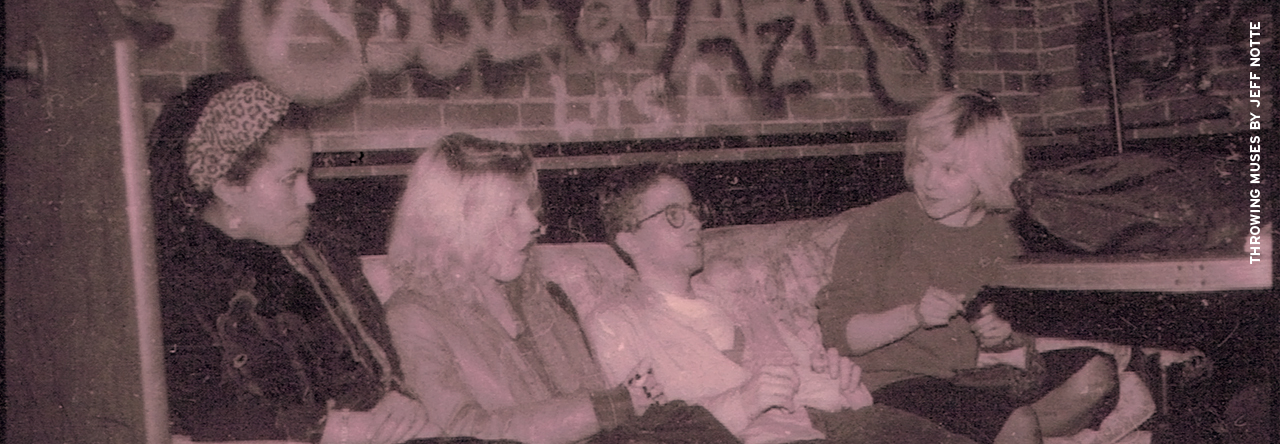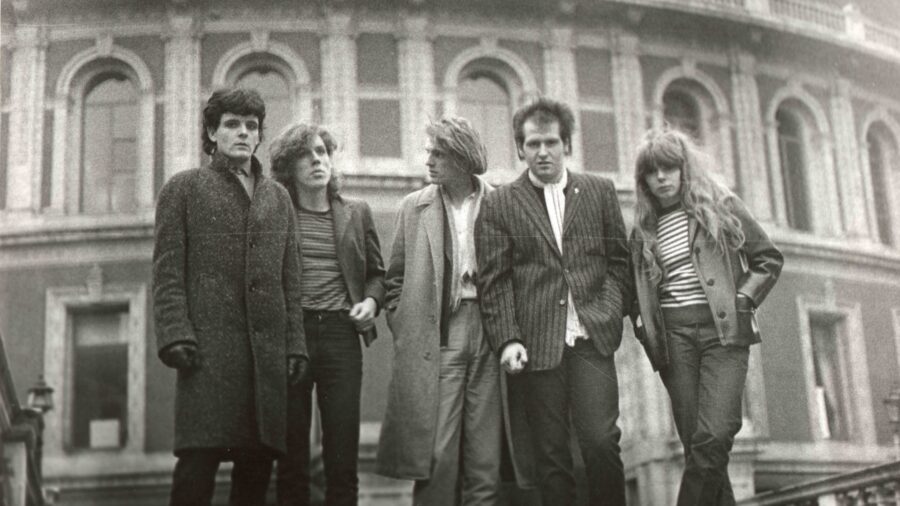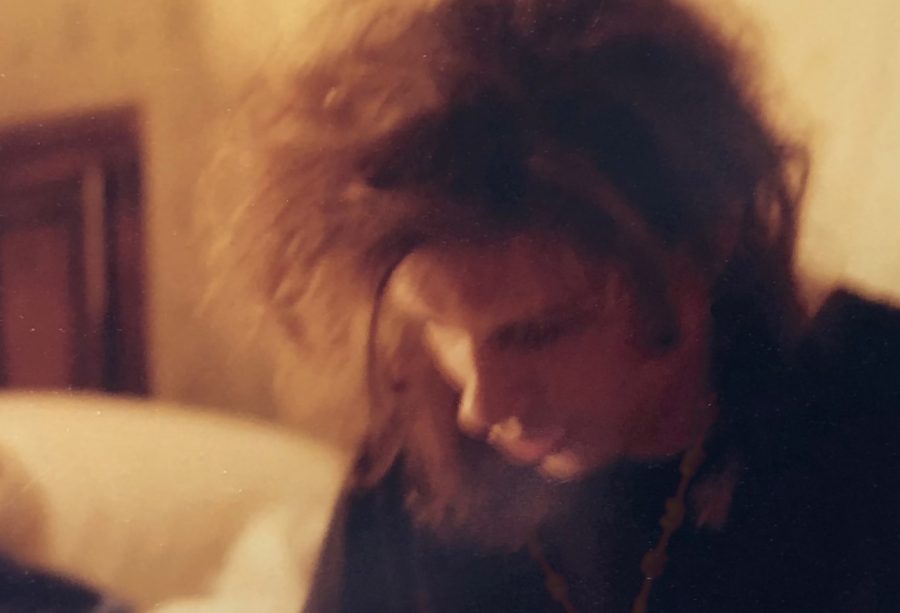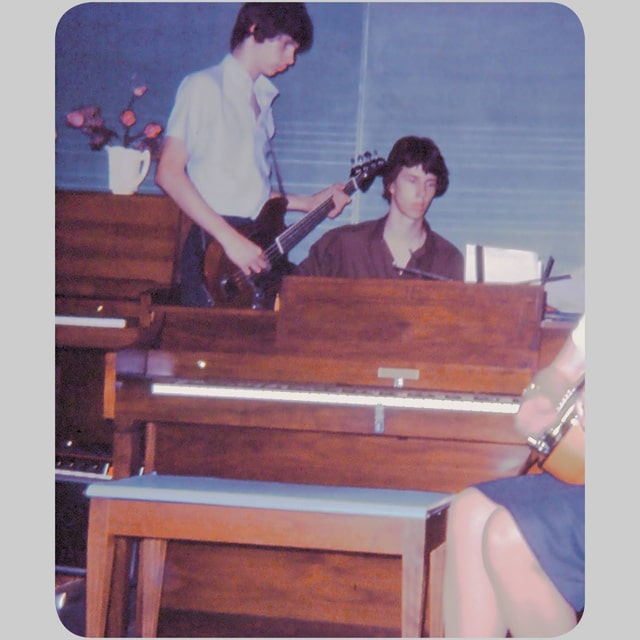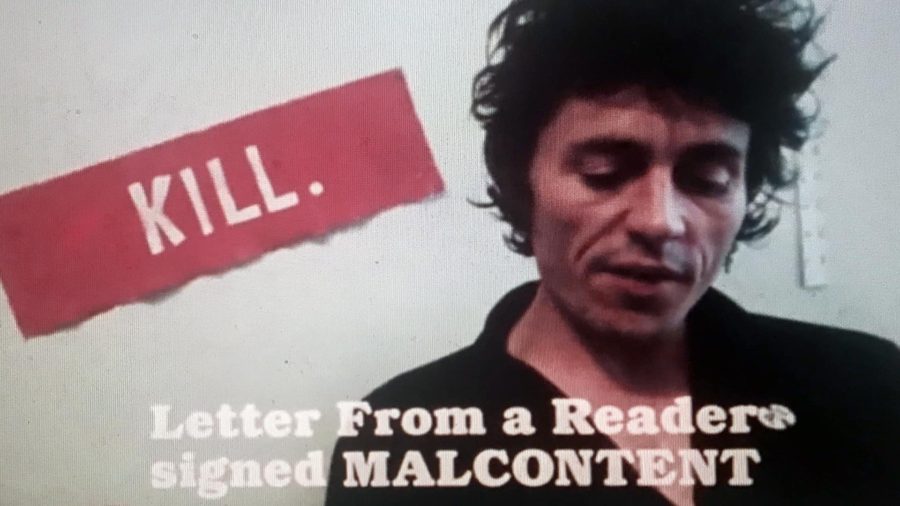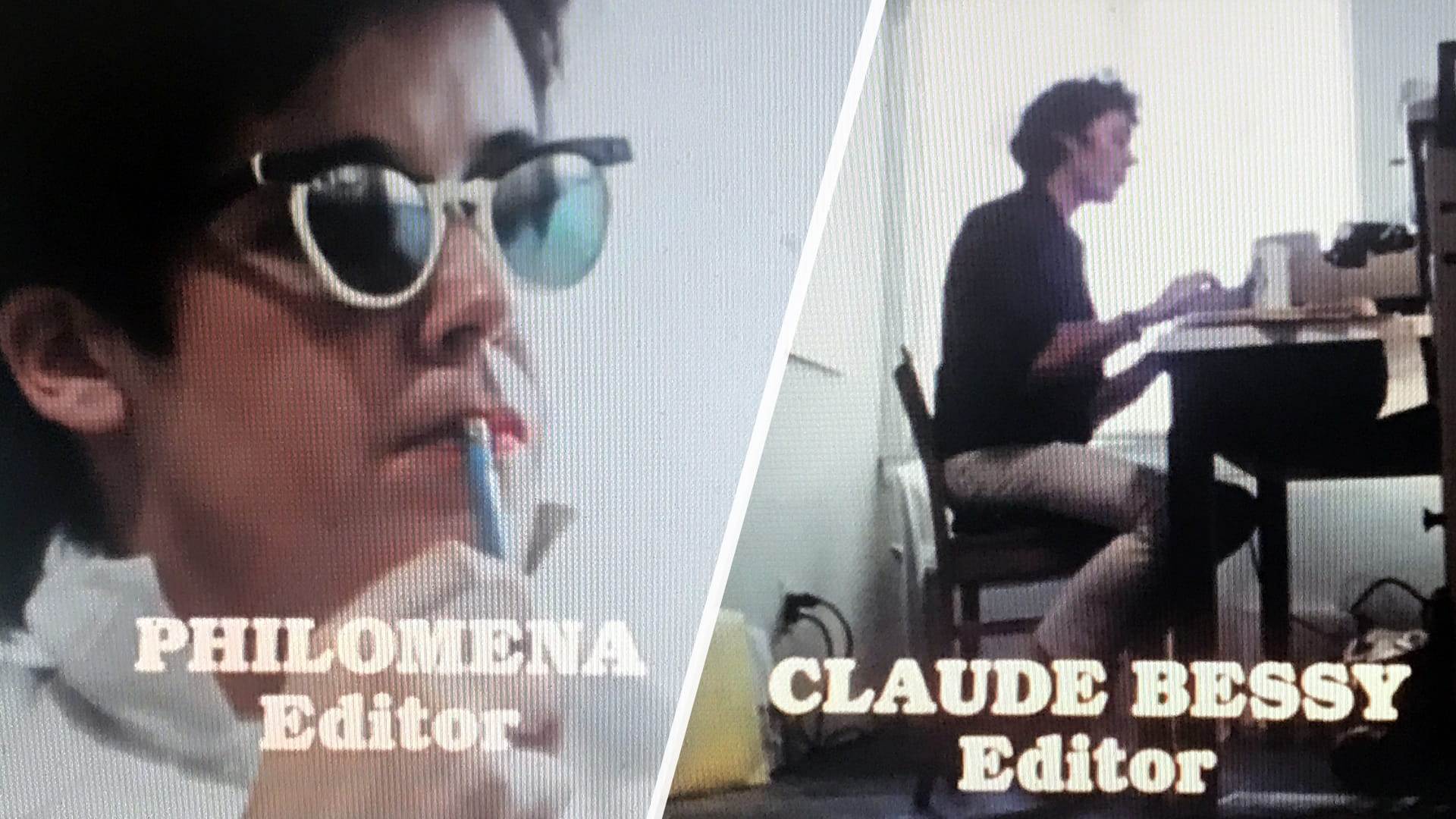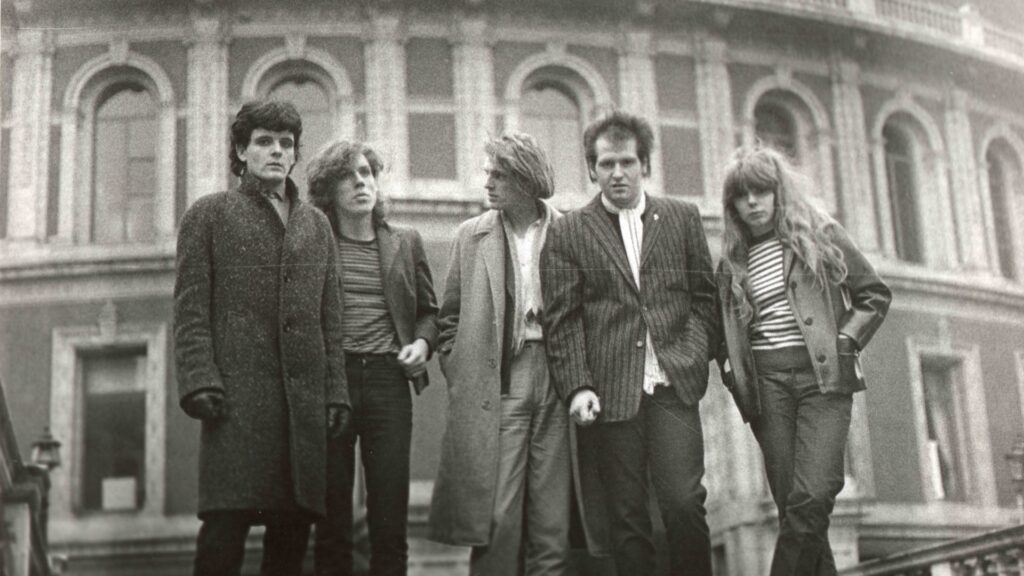
Until 2019, the sole recorded evidence of the short-lived London quintet Rema-Rema was a 4-song, 12” EP released by iconic label 4AD. (BAD 5, for those taking notes.) Wrapped in a striking George Rodger photo of Korongo Nuba tribesmen, Wheel in the Roses grabs you by the lapels with “Feedback Song,” which opens with a chorus of voices (no instruments) chanting the band’s name — this is the band as a gang, with a signature schoolyard chant.* At 30 seconds, the voices drop out, and a lone bass note booms out, setting an insistent rhythm met 45 seconds later by a skeletal drum pattern filling in the wide-open space. A clarion-call synth snakes through, then ringing feedback. The feral vocals return at the 3-minute mark, sailing over the grinding backdrop with staccato insistence. Each band member gets their introduction before the song builds up to a weird, gripping groove that’s as bracing now as it was in 1980, when it served as Exhibit A for a promising band with an ignominious end.

